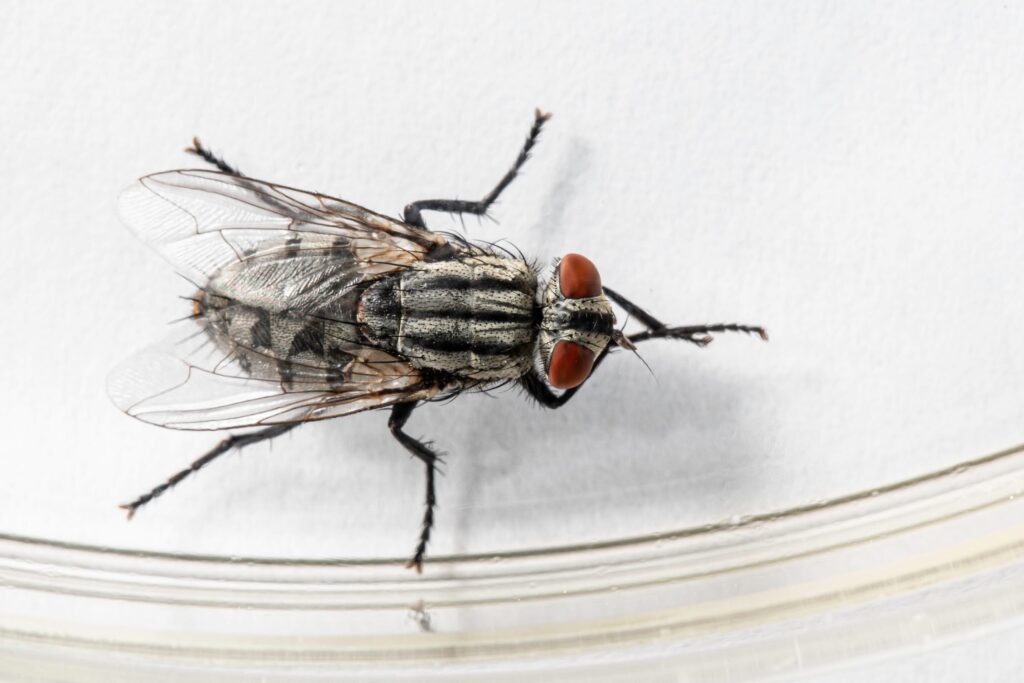The common housefly is a year-round pest, but it’s especially annoying during warmer seasons. These pesky insects have small, oval-shaped bodies that are dark gray in color with six legs, red eyes and grow up to a quarter inch long. They are found on every continent except near the polar ice caps.
Flies prefer warm temperatures, around 80 degrees, which is why they’re more prevalent in warmer months. They are attracted to inside warm air when the outside temperature is cooler, and to cooler air when it’s hot outside (above the fly’s preferred climate).
Where do Houseflies like to live?
Houseflies are most active during daylight hours around sources of food, trash, animals, water and heat (or cool if it’s hot outside). They find their way indoors through gaps in weather stripping, open doors or windows, and small openings around a building’s exterior. Houseflies are attracted to strong odors, which is why they’re often found near animals, trash, waste and other substances or areas that carry heavy smells. Human food carries smells, which is why they’re attracted to kitchens, grills or anywhere food is located.
Housefly Lifecycle
A housefly can develop from an egg to an adult within six days, depending on the conditions, and live between two to four weeks. The female housefly is larger than the male and can lay up to 900 eggs during its lifespan, with an average of 100 eggs per reproduction period. Maggots are the product of the fly’s eggs and are white larvae that look similar to small worms. These are often found in carcasses of animals, on spoiled food, on feces or in trash cans. After three to five days, the maggots will find a dark, dry environment to pupate, at which time they develop legs, wings and turn into full-grown, adult houseflies; then the cycle repeats.
Housefly Prevention
Although houseflies cannot sting or bite, they are capable of transmitting diseases through their waste, which is almost constant. They pick up germs and diseases with their legs and mouth and then lay waste on tables, counters and other common surfaces. The best way to keep flies from contaminating food, especially outdoors, is by keeping it covered and frequently cleaning eating surfaces, such as tables. Keeping garbage cans at a distance from food preparation and consumption areas, using a well-sealed lid and emptying those receptacles frequently can help prevent flies from multiplying in common areas. It’s also important to keep trash cans clean from residue, spills and free of odors that will attract flies and encourage breeding.
If your home or business has a fly infestation or cannot find the source of flies, we recommend contacting United Pest & Turf Control, a licensed and experienced pest control company. Our experts will locate the housefly’s breeding ground, offer solutions to eliminate or sanitize the source, and prevention tips.
Get Rid of Annoying Houseflies in North Alabama and Southern Tennessee
Serving North Central Alabama and South Central Tennessee
Limestone County
Ardmore
Home » Get Rid of Annoying Houseflies


